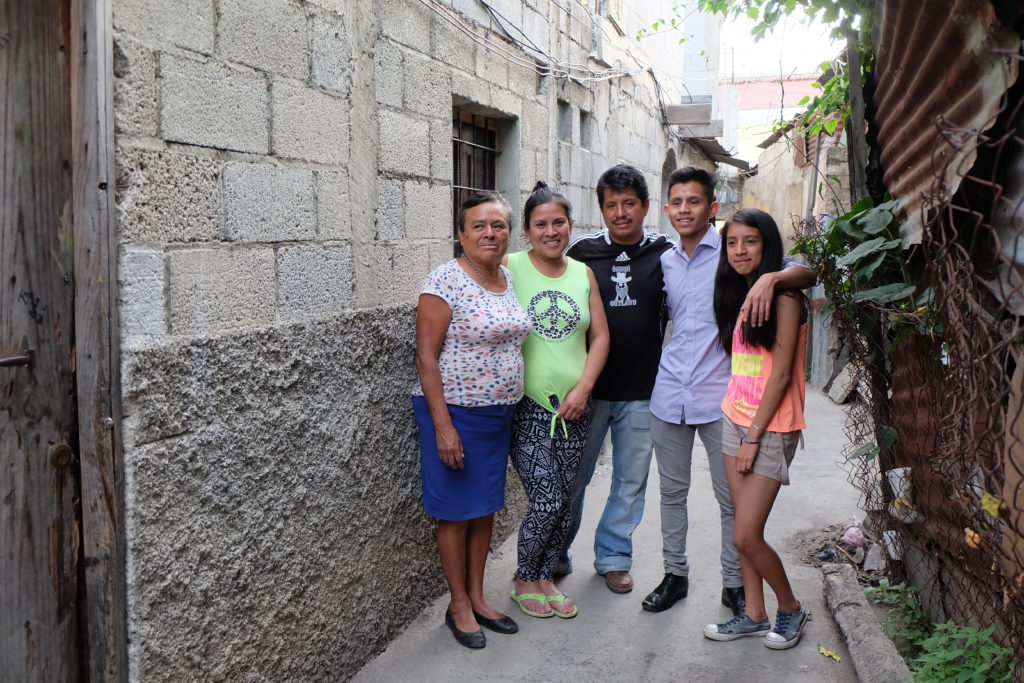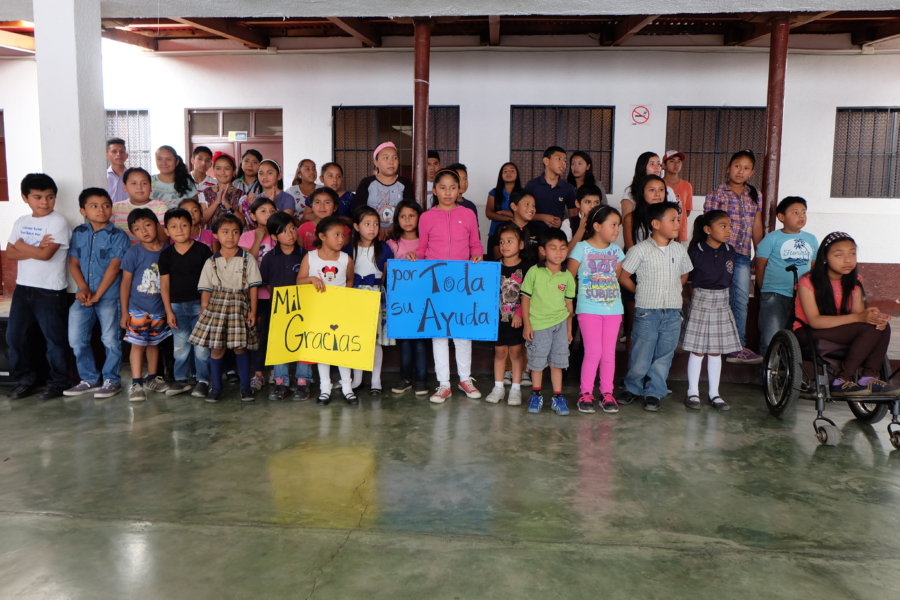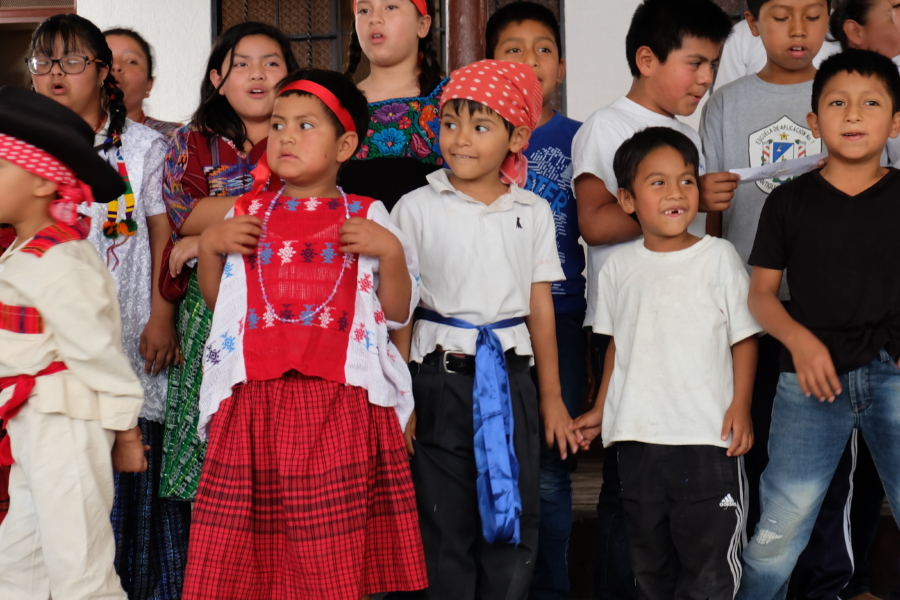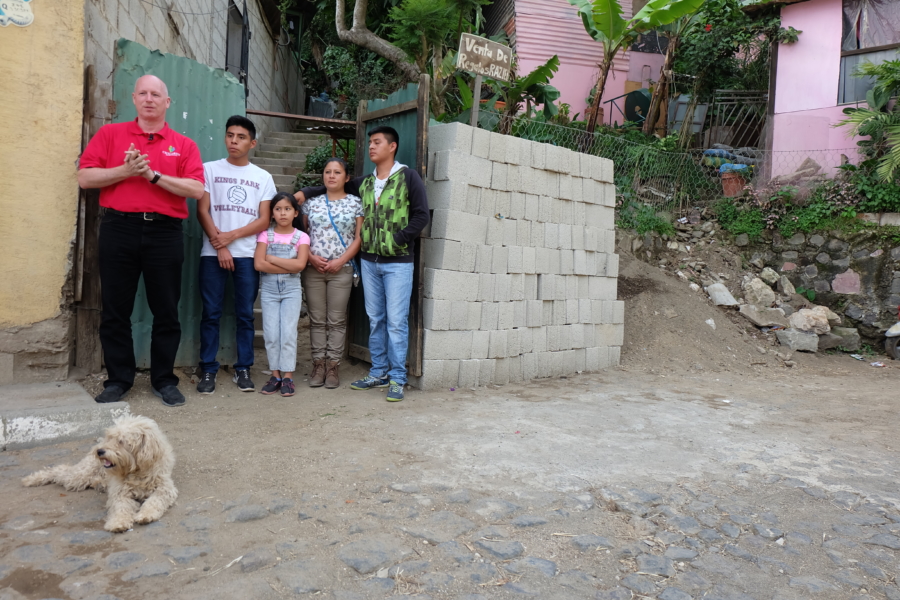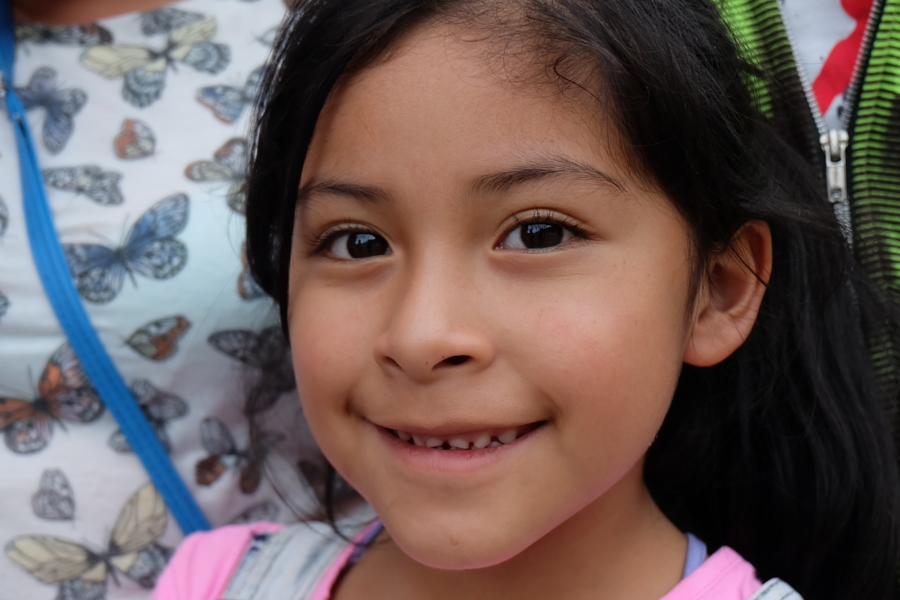Historic Antigua is the former capital of Guatemala, and it is one of the country’s most popular tourist destinations. Situated in the Central Highlands region, the town is surrounded by three volcanoes. It is known for its many renovated — and some beautifully deteriorating — colonial relics and civic and community structures, such as museums and libraries.
Antigua is a quaint scenic town that attracts tourists from all over the world, welcoming them to enjoy Guatemalan culture and food, or to learn Spanish at one of the dozens of language schools in the area. What most tourists will never see in Antigua, though, are the conditions in which impoverished local residents — including our sponsored and unsponsored children and their families – are living.
What most tourists will never see in Antigua, though, are the conditions in which impoverished local residents – including our sponsored and unsponsored children and their families – are living.
Feeding families in need
On a recent trip to Guatemala, our President and CEO, Ron Carter; our Director of International Programs, Luis Bourdet; and I visited our affiliated project Sagrada Familia in Antigua. This community center is located among many fancy restaurants, hotels, and private residences in the middle of town, close to the public schools that the children enrolled in our program at Sagrada Familia attend.
The Sisters that run the center provide kids in need with educational, nutritional, and medical support— in large part thanks to their Children Incorporated sponsors. In the afternoons, children visit Sagrada Familia, where they receive help with their homework, have a place to play and study, and are given bags of food to take home once a month.
When we arrived at the center, our Volunteer Coordinator, Sister Isabel, let us in through two large wooden doors, which open up to a concrete play area surrounded by classrooms, a kitchen, and administrative offices. Sister Isabel explained to us that beyond the help the children are receiving through sponsorship at Sagrada Familia, the center is also able to provide a great deal of support to the local community.
Three times a week, the Sisters feed nearly 200 families that would otherwise go without meals. They also offer vocational programs such as dressmaking and cooking, so that the parents of our sponsored and unsponsored children may have the opportunity to learn skills that can help them gain employment or obtain higher-paying jobs to better support their families.
Learning English for the future
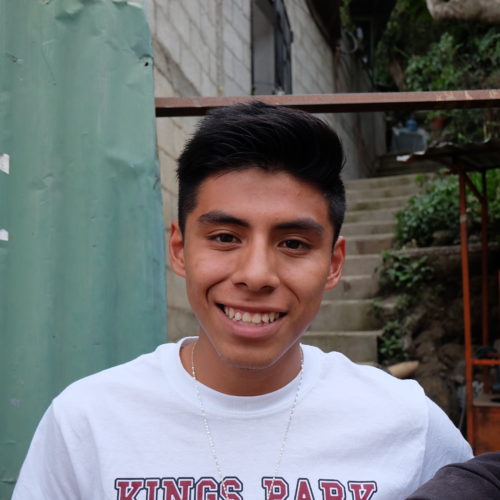
Ángel is learning English so that he will have better opportunities for employment upon graduation.
After visiting with our sponsored children and their parents, Mr. Carter, Luis, and I went with Sister Isabel to visit Ángel, who is enrolled in our program, and his family. Ángel is fifteen years old and in high school. He lives with his mother and sister in a three-room home made of tin and concrete, perched high up on a hill in a poor neighborhood on the outskirts of Antigua, where many of the impoverished residents in the town live.
There, away from the city, utilities such as electricity and running water are inconsistent. When I entered the home, I noticed that there were holes in the living room floor that exposed the dirt below. I wondered – knowing that inclement weather can be very dangerous for houses like theirs that are damaged or deteriorating – if this family feels safe during the rainy seasons.
While speaking with Ángel’s mother, we learned how she struggles to make ends meet as a single mom, and that our program is a huge help in ensuring that her family has enough to eat, and that Ángel stays in school instead of dropping out to work. Thanks to his sponsor’s support, Ángel is able to attend school, where he is also studying English. He and his mom both feel that this will help him to have more opportunities for employment after he graduates — possibly even in the tourism industry, which is a bustling one in his hometown. Mr. Carter, Luis, and I agree with them, and feel that even though Ángel faces a great deal of adversity living in poverty now, he is on the right track to having a brighter future in Antigua.
***
HOW DO I SPONSOR A CHILD IN GUATEMALA?
You can sponsor a child in Guatemala in one of three ways: call our office at 1-800-538-5381 and speak with one of our staff members; email us at sponsorship@children-inc.org; or go online to our sponsorship portal and search for a child in Guatemala that is available for sponsorship.

